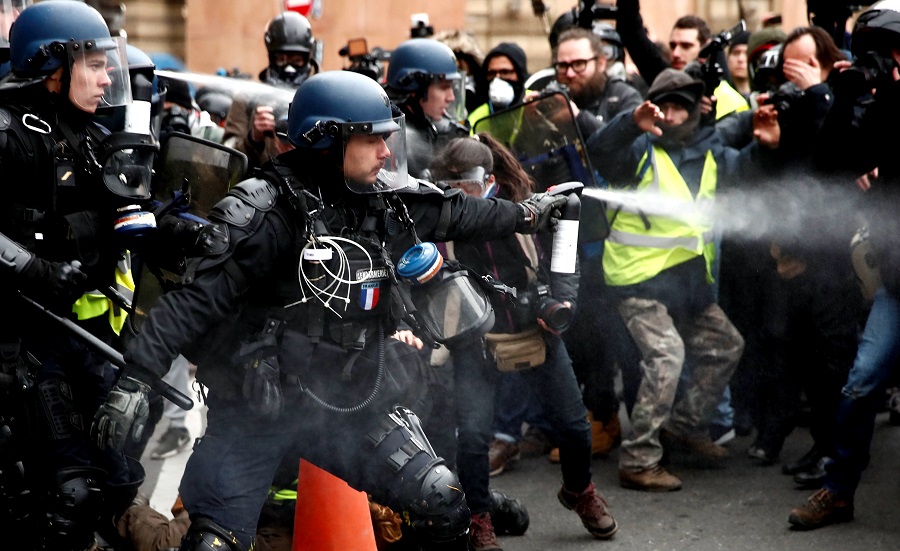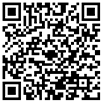
The concessions made by French President Emmanuel Macron and the warning following a terror attack in Strasbourg failed to stop the "yellow vest" protesters from demonstrating for the fifth consecutive Saturday across the country.
Compared with previous demonstrations of more than 125,000 people across France, 66,000 protesters showed up on Saturday, including about 3,000 in Paris. Cold weather, a government warning and concessions were likely reasons for the smaller crowd.
France deployed 69,000 police nationwide on Saturday, including around 8,000 in Paris. In and near the Champs-Elysees in Paris, police used tear gas and water cannon to disperse protesters. About 115 people were detained.
Some protesters held signs calling for President Emmanuel Macron to step down while some others called for a referendum on social issues.
Unlike the past weeks, major shops and museums, such as the Louvre, Eiffel Tower, Galeries Lafayette and Printemps, remained open on Saturday.
The government had called on the protesters to suspend the action in the wake of Tuesday night's terror attack on the Christmas market in Strasbourg, where a gunman went on a shooting spree and killed four people.
Macron also announced on Monday evening some major concessions to scrap a fuel tax rise, which sparked the yellow vest protest in the first place. He also promised to raise the minimum wage by 100 euros a month starting in January and tax cuts for pensioners. But Macron has not yielded to demands to restore the wealth tax that targets the rich.
Social reforms
Olivier Dussopt, France's secretary of state to the Ministry of Public Action and Accounts, told the press that the social reforms are expected to cost the government between $8 billion and $10 billion.
The yellow vests, known in French as "gilets jaunes" (a high-visibility yellow jacket that must be carried in every vehicle in France), started as a protest against the fuel tax hike proposed by Macron early this year aimed at fighting carbon emissions. But it has since spread to broad frustration with the government over a wide range of issues.
The protesters are demanding higher salaries, lower taxes, better pensions and easier university entry requirements.
A study by the French economic observatory OFCE shows that disposable income in the country dropped by 440 euros on average for each household between 2008 and 2016.
The movement has gained widespread support in the French society. On Saturday, large-scale yellow vest protests took place in the cities of Bordeaux, Nantes and Calais.
The movement has also spread to other countries, where people at the bottom of the society are increasingly frustrated with the social inequality and the difficulty to make ends meet amid accusations that taxes are too high.
Following similar protests in Brussels, the Belgian government also announced that fuel prices would not be index-linked from next year.
One Ikea lorry driver in Brussels told China Daily on Friday that life is difficult because he works long hours and everything is getting so much more expensive now.
"It's impossible (financially) to live alone," said the man who did not want to be named.
 Others
Others
-

Like
(0)















I have something to say